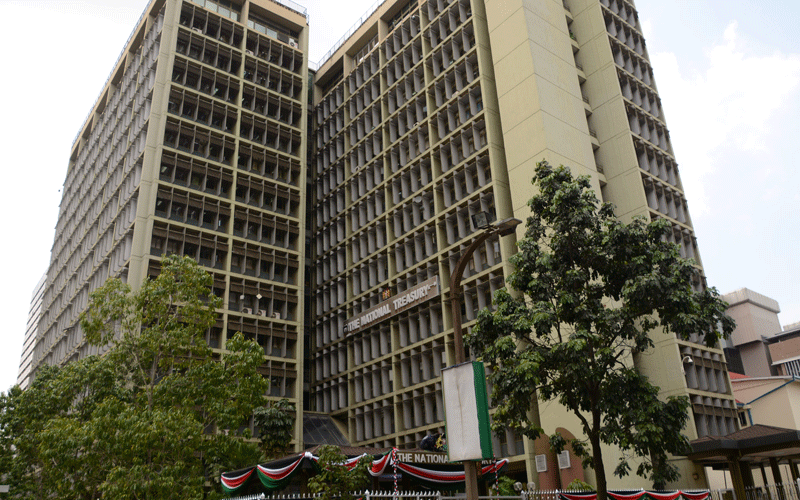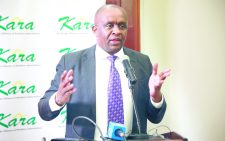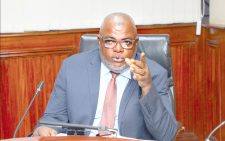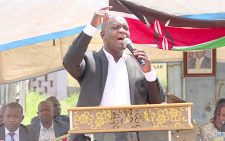Experts warn of looming financial crisis

The 2021/22 budget may not be fully implemented due to lack of funds and time constraints, experts warn.
At the same time, the next budget statement is expected to be read earlier because of the election calendar.
Parliamentary Budget Office (PBO) says the 2022/2023 budget will be read in February, four months before the June date, to give MPs time to engage in next year’s election campaigns.
PBO is now foreseeing a financial crisis as economic activities slow down because of political uncertainty next year and therefore, implementation of most projects earmarked for this year will have to be pushed to the 2022/23 budget.
In its latest report dated May 2021, “Unpacking the Estimates of Revenue and Expenditure for 2021/2022 and the Medium Term”, the budget office has also raised concern that the Treasury has not adequately addressed the Covid-19 pandemic.
The PBO also lists risks to the macroeconomic outlook that include political uncertainty as the country approaches the General Election.
The report notes that investment efforts are likely to be put on hold as investors adopt a ‘wait-and-see’ attitude until after the elections.
This will likely affect revenue targets for Treasury to fully funds the budget.
Also, the resumption of strict Covid-19 containment measures in the second quarter of 2021 given the slow procurement and distribution of the Covid-19 vaccine has affected the economic growth.
“Should this materialise, economic growth for 2021 may decline further to four per cent,” reads the report.
Given the prevailing economic conditions, Kenya entered a 38-month IMF programme under the Extended Credit Facility (ECF) and Extended Fund Facility arrangements for approximately US$ 2.4 billion (Sh250 billion).
“As is the case with IMF programmes, the country has to contend with fiscal and monetary measures to correct its macroeconomic imbalances.
These include target setting for the budget deficit, tax revenue, stock of Central Bank net international reserves and public debt targets,” the PBO states.
Reforms expected under revenue administration, government procurement process, containment of the public wage bill, restructuring of State-Owned Enterprises (SoEs) and rationalisation of public investment projects have not been implemented.
Lack of implementation has left many gaps including the Equalisation Fund estimates, which have not been provided contrary to the Constitution.
The PBO says the policy direction of the 2021/22 budget remains unclear, adding that while it speaks about the Post Covid-19 Economic Recovery Strategy (ERS) and the ‘Big Four’ agenda, these have not been prioritised.
“There is no clear theme that has been identified as a general guide to budgetary allocations. Resources appear to have simply followed previous trends with the bulk being allocated to education and infrastructure,” states the report.
The 2021/22 budget, the report notes, contains a comprehensive list of projects to be implemented by the various ministries, departments and Agencies (MDAs) and the estimated costs.
Minimise wastage
Part of the structural reforms under the IMF programme is to rationalise public investment projects.
However, the budget as presented does not show extraordinary effort to streamline and prioritise investment spending to improve the effectiveness of development expenditure.
“There is no road map on how to deal with the huge stock of incomplete/stalled projects in the budget including which ones will be prioritised and which ones are not economically viable,” the PBO reports.
The office advises that even though this is a long-term target, strategies should be put in place early on to minimise wastage on low projects.
Reads the report: “Indeed, some projects such as the Annuity low-volume seal roads have been found to be very costly and recommendations have been made by the National Assembly for termination of the programme, but it continues to be allocated funds in the budget.”
To remedy the budgetary arising, the PBO proposes that the shilling be supported by narrowing the current account deficit as export earnings increase including earnings from tourism as well as remittances.
The office urges the Monetary Policy Committee to maintain an accommodative monetary policy stance to boost credit growth to the private sector.









